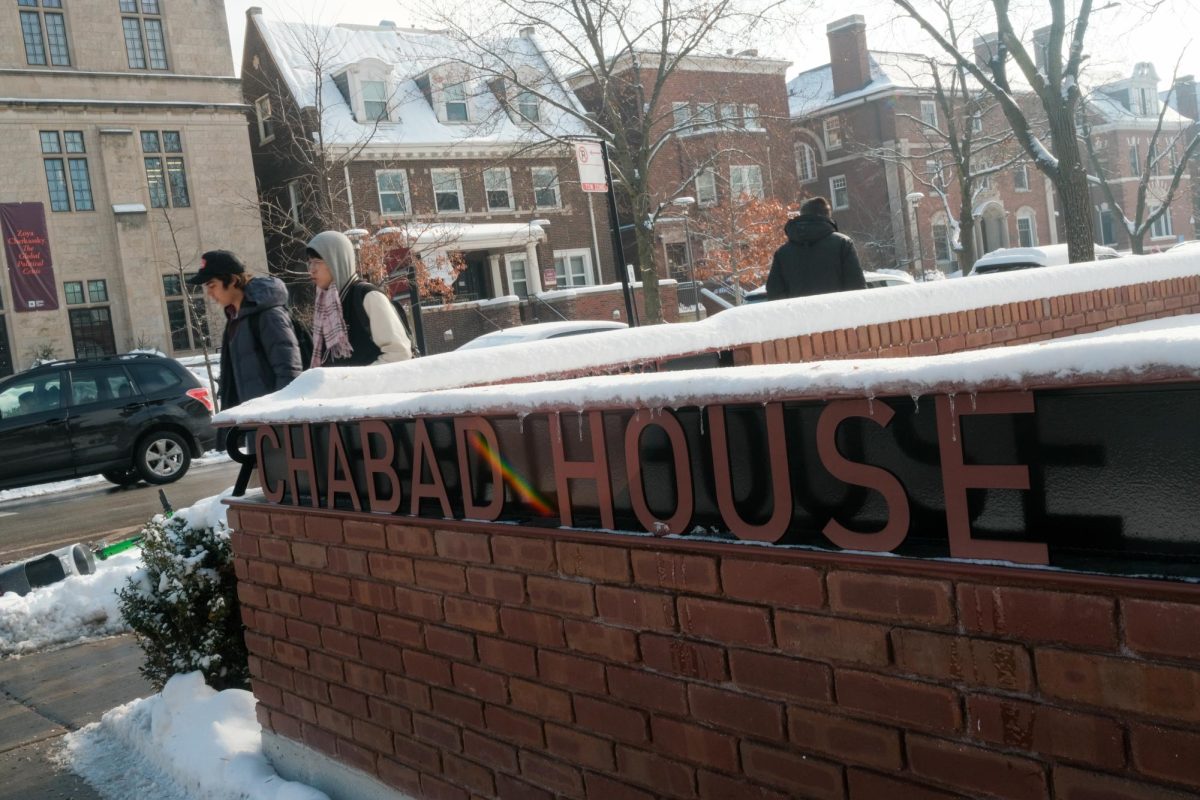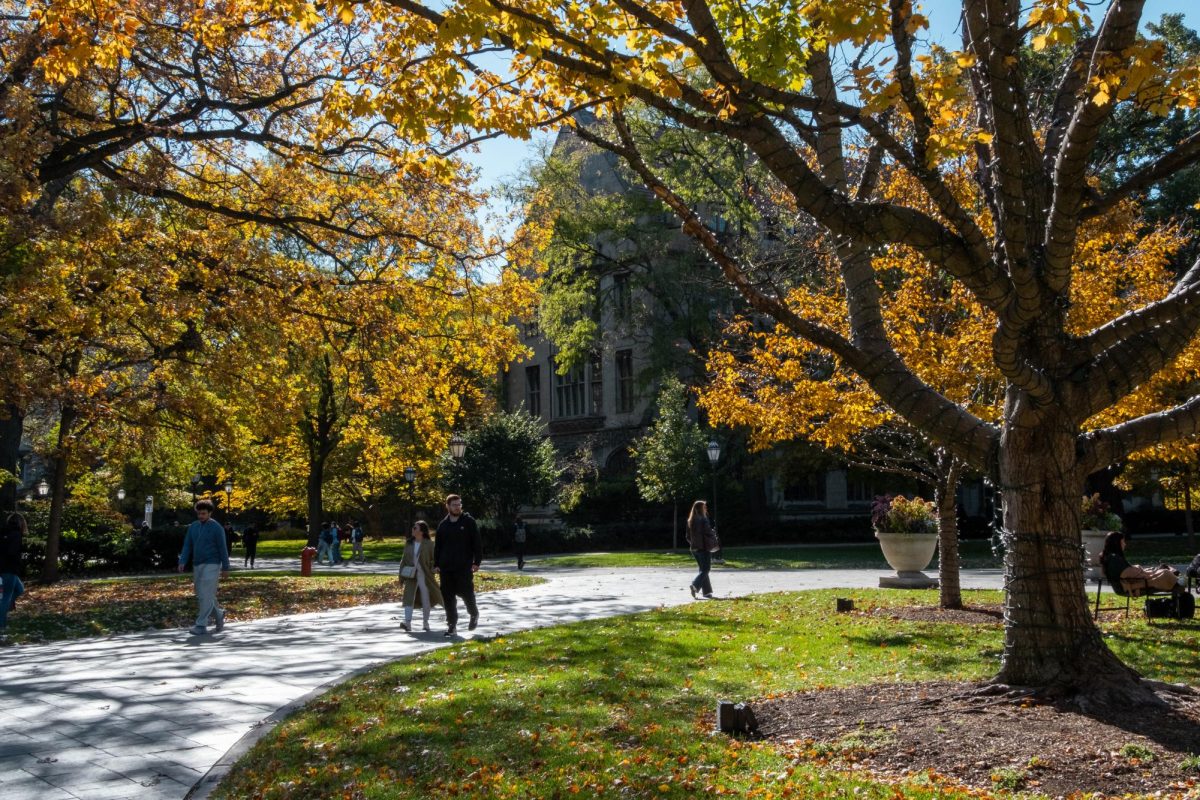Subscribe to the Maroon Newsletter here.
Good morning. It’s fourth week.
Graduate students voted for unionization by a decisive margin. The NLRB said yesterday—after about five hours of vote count proceedings—that there were 1,103 “yes” votes to 479 “no” votes.
- Turnout was high: 70.5 percent of eligible students voted (counting the 149 votes that were challenged and left uncounted).
- “Everyone is just so pumped and happy,” GSU organizer Daniela Palmer said. “We sent a strong message collectively that we should have a say on this campus…. I genuinely hope [the admin] will respect this outcome given how significant our margins were for the win.”
- Legal fight continues: University lawyers had previously requested that the NLRB overturn its August 2016 decision that allowed for graduate students to unionize, and with a Republican majority on the NLRB that’s not impossible. A spokesperson reiterated after the vote that the University wants a reversal of the decision, and Provost Daniel Diermeiere-mailed graduate students a similar message Thursday evening.
- A professor on the faculty governing council said the campaigning back and forth was “terribly polarizing, pitting admin and faculty against students. We have much bigger things to worry about. The infighting is disheartening and depressing. Especially since GSU has alluded to the admin’s alliance with the Trump administration, which couldn’t be further from the truth. The Trump admin is doing everything in its power to dismantle solid academic institutions, as they see us (as an aggregate) as the enemy.”
- GSU’s next step will be to come up with new bylaws to solidify a democratic structure for the organization with elected representatives.
- Something to watch: A challenge for GSU going forward will be unifying its large base of supporters with the half of the bargaining unit that voted “no” or didn’t vote at all. And GSU has work to do to win over even some of the yes votes. Consider this quote: “The union organizers are too aggressive. I voted yes, but almost voted no because of the aggression.”
- Read our front page unionization story here.
The endowment reached an all-time high of $7.82 billion, the University announced this week. This year’s strong 11.8 percent gain follows a disappointing 1.9 percent drop the previous fiscal year.
University partnering with UIUC on Polsky tech hub: In a press conference at the Polsky Center yesterday, UChicago President Robert J. Zimmer and the chancellor of the University of Illinois at Urbana-Champaign (UIUC) announced a partnership between the two universities aimed at nurturing and commercializing technologies that they said will address some of society’s most pressing challenges. Also present: Mayor Rahm Emanuel and Governor Bruce Rauner, eager to talk about the economic benefits of the collaboration for the city and the state.
- Details: 100 faculty, researchers, and students from UIUC will be sent to the University of Chicago’s Polsky Center for Entrepreneurship and Innovation.
- Location: The University will build an additional complex for the Polsky Center at 53rd Street and Lake Park Avenue to house these researchers and other staff, as part of the second phase of the Harper Court project. The complex should be fully functional by 2020.
- Rationale: Zimmer says that “by making the most of each institution’s distinctive leadership in science, engineering and business development, and our combined infrastructure, this ambitious initiative will accelerate the pace of discovery while providing a clear path to economic development for our community, city and state.”
- Flashback: In one of the administration documents obtained by The Maroon over the summer, a UIUC and UChicago collaboration was scheduled to be announced in October. Yesterday’s announcement was probably what the documents were referring to.
Sad message from the Dean of Students: Deans John Boyer and John “Jay” Ellison informed students in an e-mail yesterday of the death of third-year Jet Puentes. According to the e-mail, Puentes was a biological sciences major in the ecology and evolution track, and lived in Rickert House in Max P.
Lawrence Summers, an economist at (and former president of) Harvard and former Treasury Secretary of the United States, spoke Wednesday at the Logan Center about economic growth, the Chicago School, and what he learned from 2017 Nobel winner Booth professor Richard Thaler.
UC Medicine fights cancer with gene therapy: After the FDA approved a new gene therapy designed to combat the most common forms of non-Hodgkin’s Lymphoma, a blood cancer, the University of Chicago Medicine announced that it will be the first health care provider in the Chicago area to offer the treatment. In a clinical trial to test the treatment, the complete remission rate was 51 percent.
In Viewpoints
Viewpoints editor Urvi Kumbhat writes in:
Columnist Natalie Denby points to Chicago's decreasing population as evidence that marginalized groups are finding it increasingly hard to live in Chicago, and calls for attention to segregation and security concerns in the city.
In Sports
Sports editor Cavell Means writes in:
The sailing team captured a championship at the University of Michigan.Women’s soccer wins, yet again. Men’s soccer lost a tight game but is still motivated to win it all. Football gears up for homecoming on Saturday.
In Arts
Arts editor May Huang writes in:
More than 200 buildings—from art studios to churches—welcomed the public inside their doors last weekend for the Chicago Architecture Foundation’s annual Open House Chicago.
At the Renaissance Society, Jennifer Packer’s Tenderheaded explorespolitics through depicting cultural narratives and painting black bodies.
Meat lovers should check out the newly opened BBQ Supply Co., which has replaced Yusho on 53rd Street.
Subscribe at chicagomaroon.com/newsletter. Feedback via e-mail.








